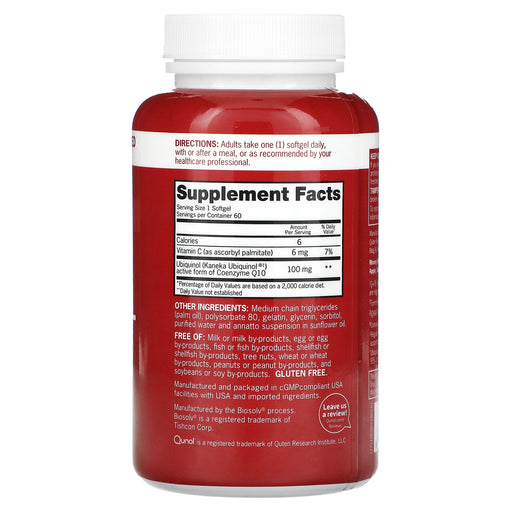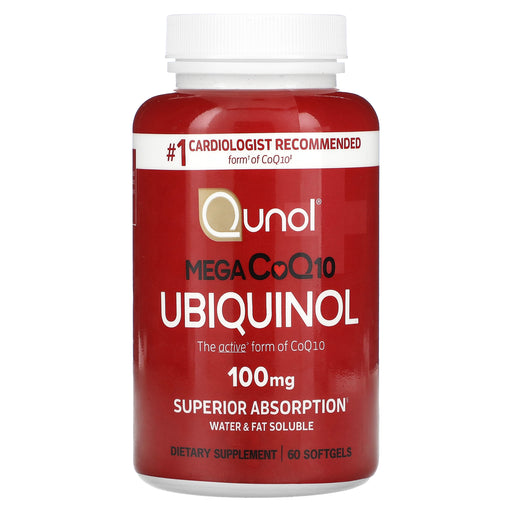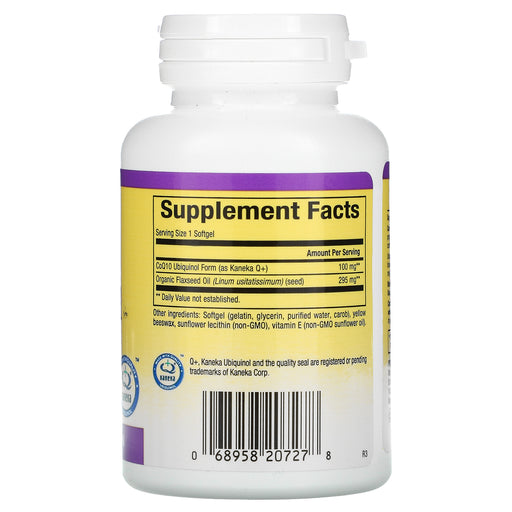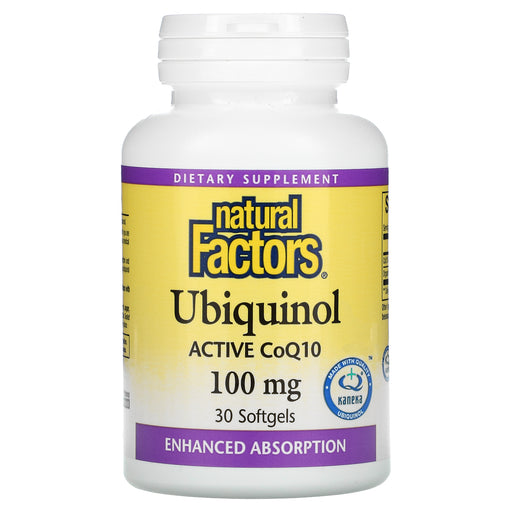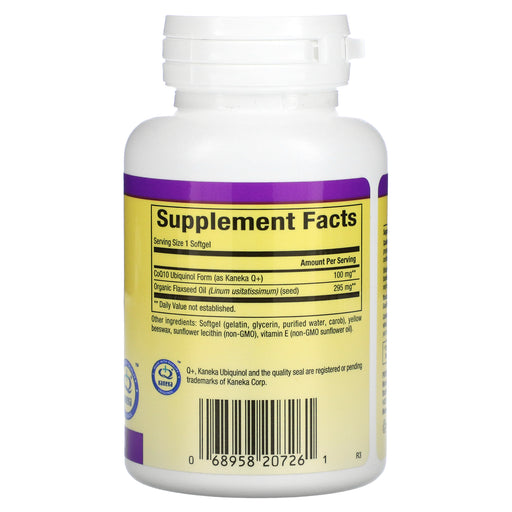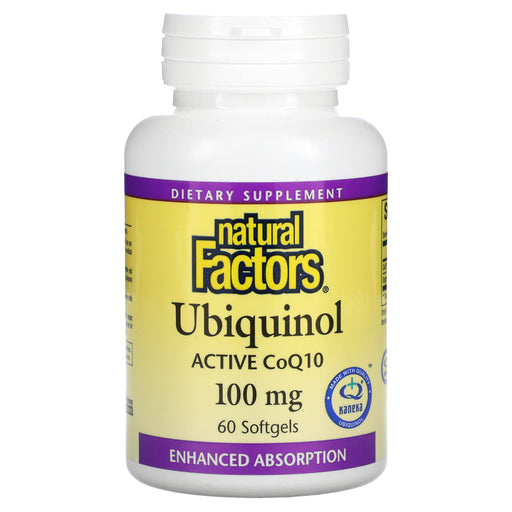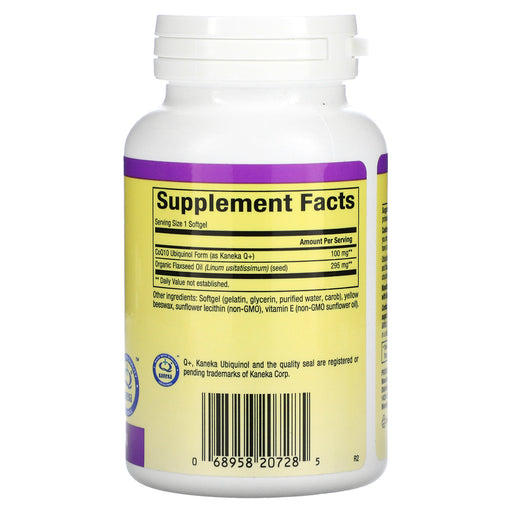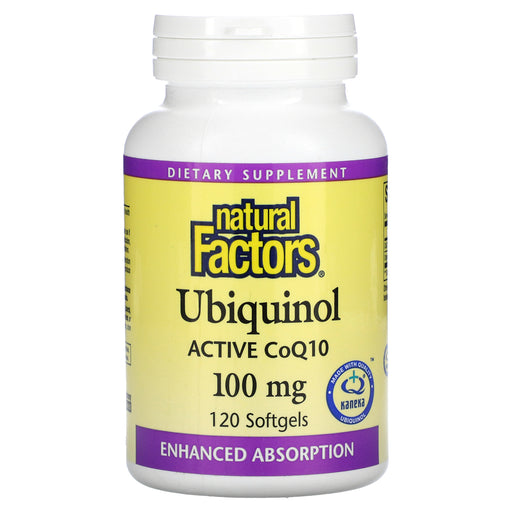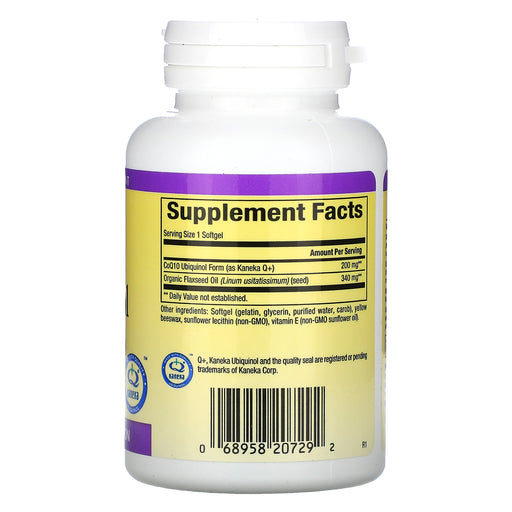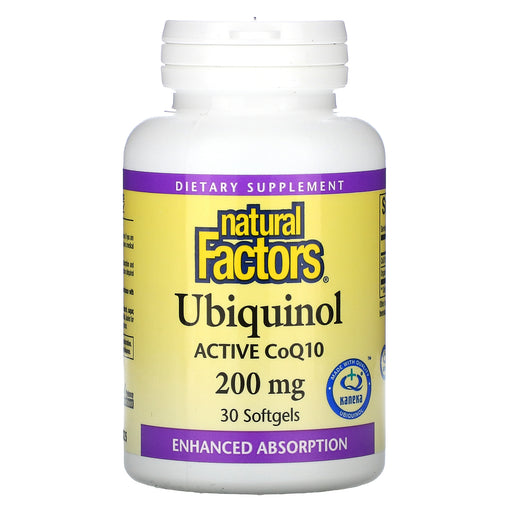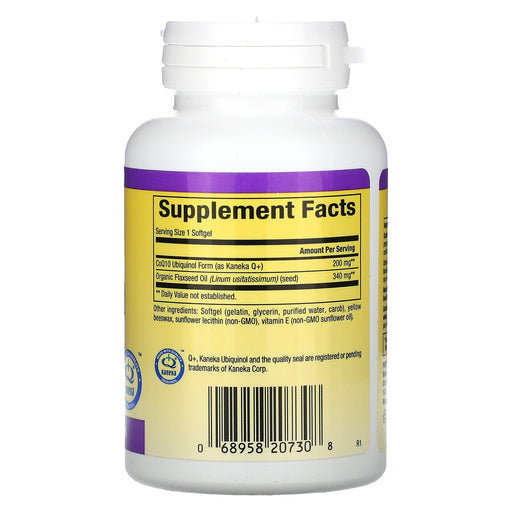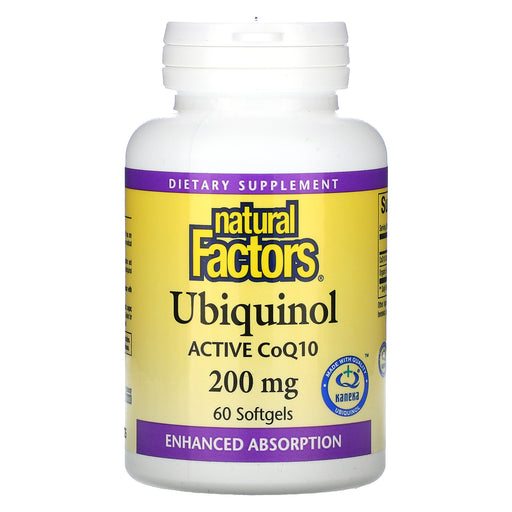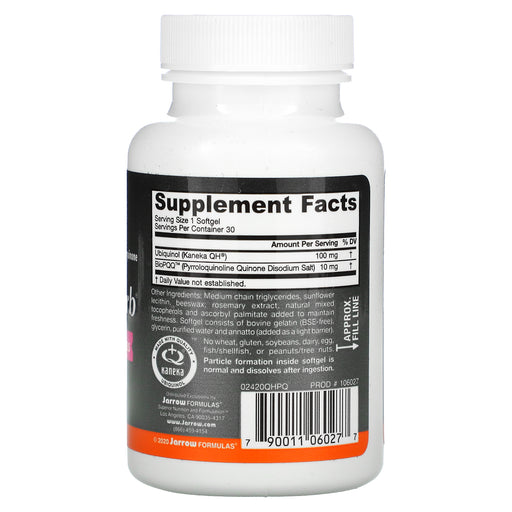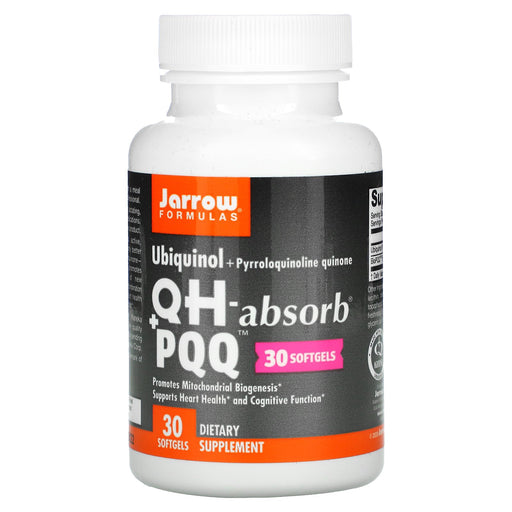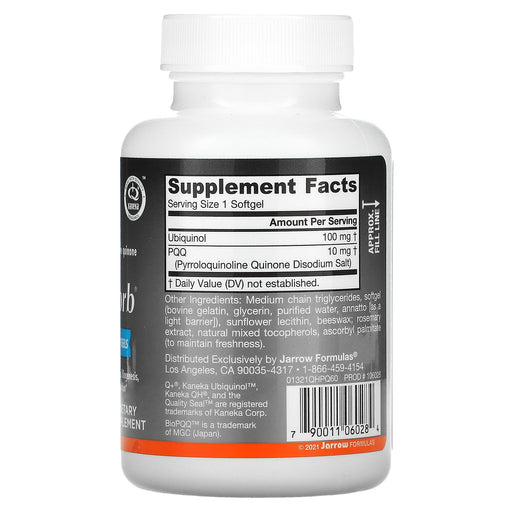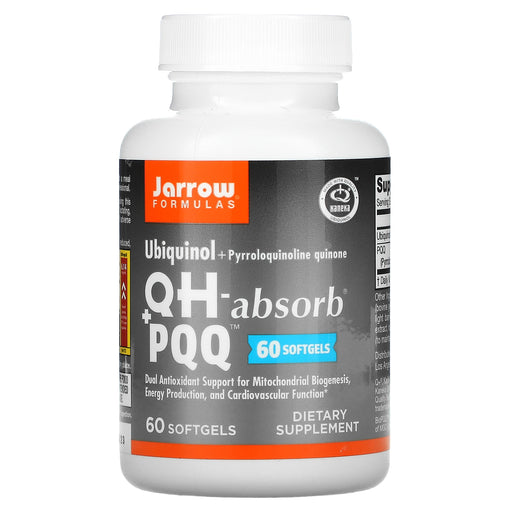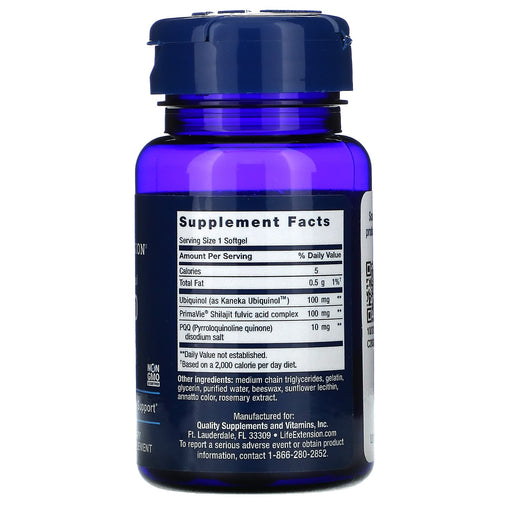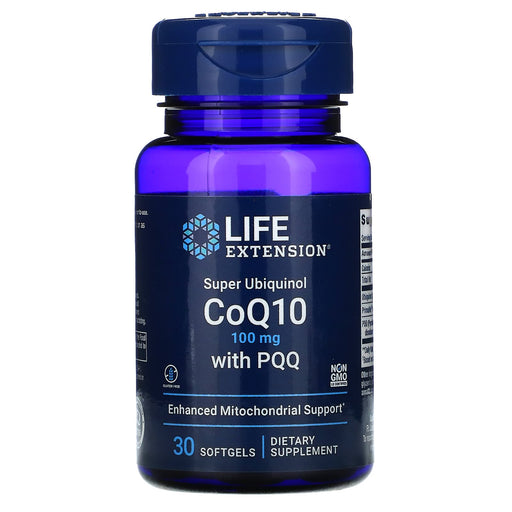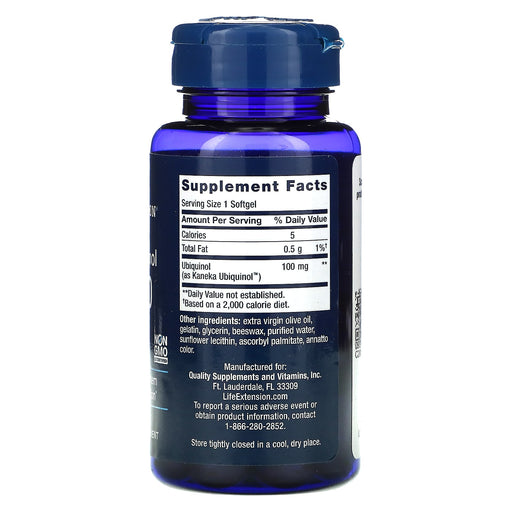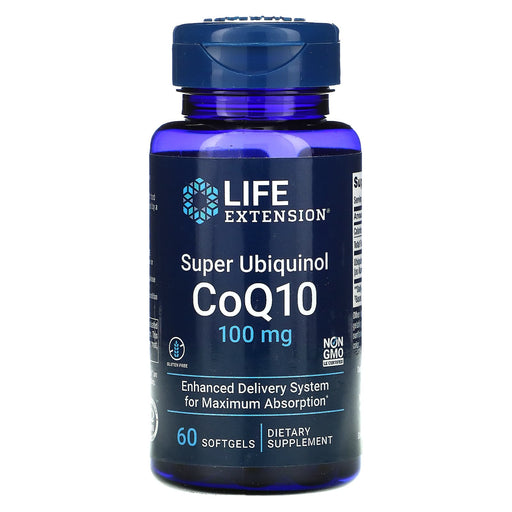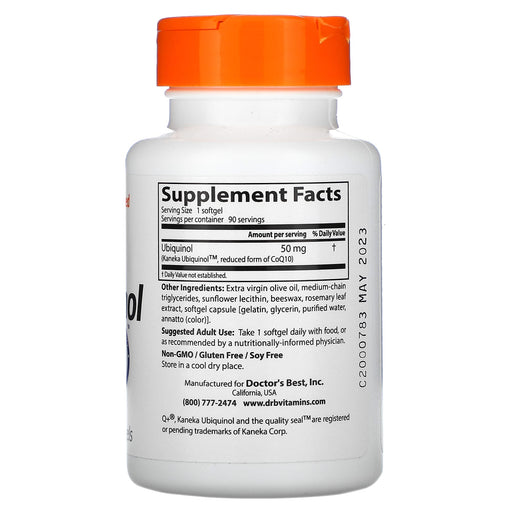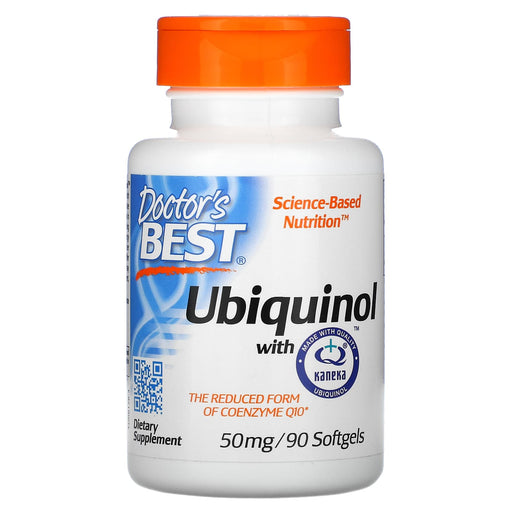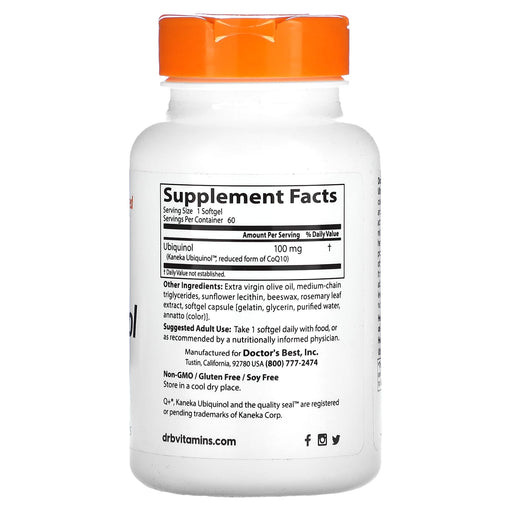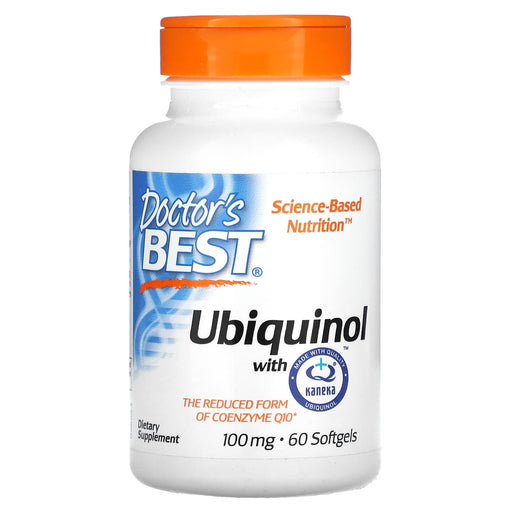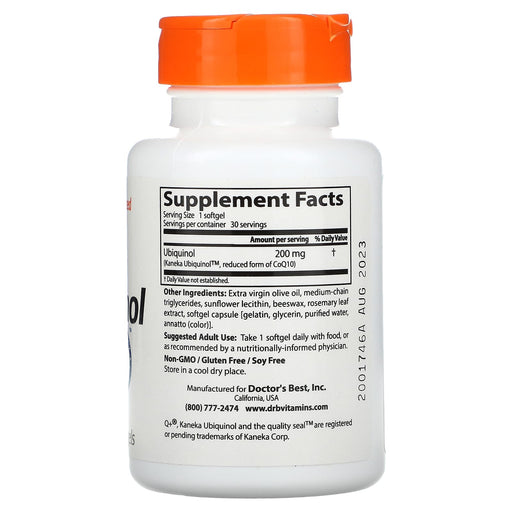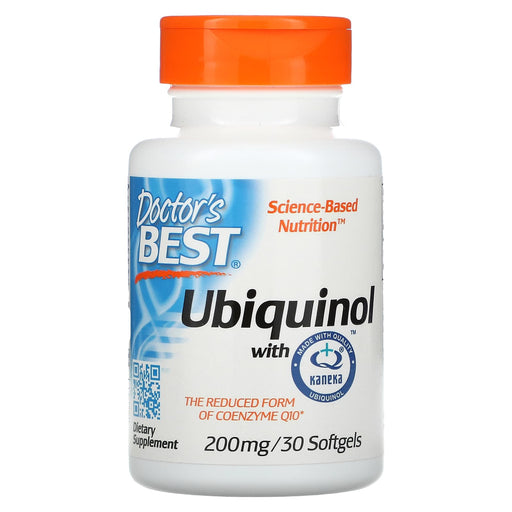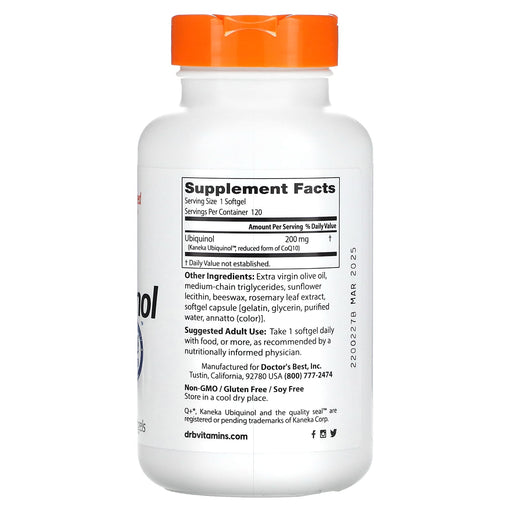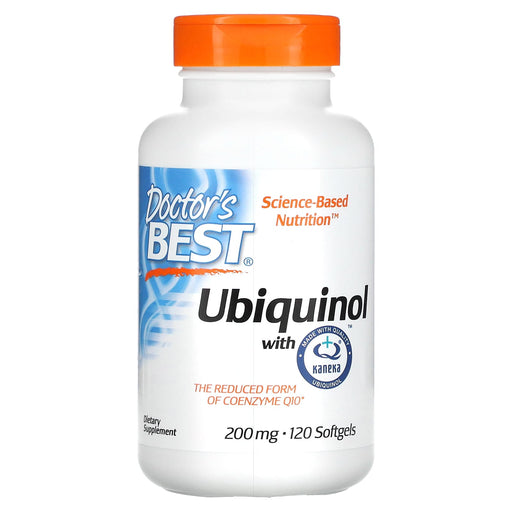
Fueling Your Cells for Optimal Health and Energy
In the intricate world of cellular energy production, few compounds are as essential as Coenzyme Q10 (CoQ10) and its reduced, more bioavailable form, Ubiquinol. These vital nutrients play a crucial role in the mitochondrial energy production process, supporting heart health, brain function, and overall well-being.
Understanding CoQ10 and Ubiquinol
Coenzyme Q10 (CoQ10) is a fat-soluble compound naturally produced by the body and found in every cell, with the highest concentrations in energy-demanding organs like the heart, liver, and kidneys. As a key component of the mitochondrial electron transport chain, CoQ10 helps generate adenosine triphosphate (ATP), the primary energy currency of the cell.
Ubiquinol is the reduced, active form of CoQ10 that is more easily absorbed and utilized by the body. As we age, our body's natural production of CoQ10 and its conversion to Ubiquinol declines, making supplementation increasingly important for maintaining optimal cellular energy production and overall health.
The Benefits of Ubiquinol and CoQ10
Supplementing with Ubiquinol and CoQ10 can offer a wide range of potential health benefits, including:
- Heart Health Support: CoQ10 and Ubiquinol help support healthy heart function, energy production in heart cells, and overall cardiovascular well-being.
- Antioxidant Protection: As powerful antioxidants, CoQ10 and Ubiquinol help protect cells from oxidative stress and damage caused by free radicals, supporting healthy aging and overall wellness.
- Brain Function Support: These compounds play a crucial role in energy production in brain cells, supporting healthy cognitive function, memory, and mental clarity.
- Exercise Performance and Recovery: CoQ10 and Ubiquinol may help support energy production in muscle cells, aiding in exercise performance and recovery.
- Skin Health: The antioxidant properties of CoQ10 and Ubiquinol may help protect skin cells from oxidative damage, promoting a youthful, radiant complexion.
Ubiquinol, CoQ10, and Related Vitamins
To optimize the benefits of Ubiquinol and CoQ10, consider pairing them with related vitamins and minerals that support cellular energy production and overall health, such as:
- Vitamin B Complex: B vitamins, particularly Thiamine (B1), Riboflavin (B2), Niacin (B3), and Pantothenic Acid (B5), play essential roles in cellular energy production and metabolism. Combining Ubiquinol and CoQ10 with a comprehensive B complex supplement may provide synergistic benefits for energy and overall well-being.
- Vitamin E: As a fat-soluble antioxidant, Vitamin E works synergistically with CoQ10 and Ubiquinol to protect cells from oxidative stress and support overall health.
- L-Carnitine: This amino acid derivative helps transport fatty acids into the mitochondria for energy production. Pairing Ubiquinol and CoQ10 with L-Carnitine may further support cellular energy metabolism and heart health.
Choosing High-Quality Ubiquinol and CoQ10 Supplements
When selecting an Ubiquinol or CoQ10 supplement, it's essential to choose high-quality products from reputable brands. Consider the following factors:
- Bioavailability: Opt for supplements that contain highly bioavailable forms of CoQ10, such as Ubiquinol or CoQ10 with enhanced absorption technology, to ensure optimal utilization by the body.
- Optimal Dosage: Choose supplements that provide clinically effective dosages of Ubiquinol or CoQ10, typically ranging from 100-300mg per serving, depending on your individual needs and health goals.
- Purity and Quality: Look for supplements manufactured in GMP-certified facilities, free from contaminants and fillers, and third-party tested for purity and potency.
- Brand Reputation: Select supplements from trusted brands with a history of producing effective, science-backed Ubiquinol and CoQ10 products.
Incorporating Ubiquinol and CoQ10 into Your Health Regimen
To maximize the benefits of Ubiquinol and CoQ10, consider the following tips:
- Follow Dosage Instructions: Always adhere to the recommended dosage on the product label, and consult with a healthcare professional before starting any new supplement regimen, especially if you have pre-existing health conditions or are taking medications.
- Take with Food: Ubiquinol and CoQ10 are fat-soluble compounds, so taking them with a meal containing healthy fats can enhance their absorption and bioavailability.
- Pair with a Healthy Lifestyle: While Ubiquinol and CoQ10 supplements can provide numerous benefits, they should be used in conjunction with a balanced diet, regular exercise, and healthy lifestyle habits for optimal results.
Fuel Your Cells and Recharge Your Health
Ready to support cellular energy production, heart health, brain function, and overall well-being? Explore our collection of premium Ubiquinol and CoQ10 supplements and experience the transformative power of these essential nutrients.
Our Ubiquinol and CoQ10 products are carefully formulated with highly bioavailable ingredients and optimal dosages to ensure maximum effectiveness. Whether you're looking to support cardiovascular health, cognitive function, exercise performance, or overall vitality, our supplements can help you fuel your cells and recharge your health.
Start your journey towards optimal cellular energy and well-being with Ubiquinol and CoQ10. Browse our collection today and experience the remarkable potential of these vital nutrients for your health and vitality.
Frequently Asked Questions about Ubiquinol, CoQ10
1. What is ubiquinol used for?
Ubiquinol is a reduced form of Coenzyme Q10 (CoQ10) that is more easily absorbed by the body. It is used to support heart health, energy production, and cellular health. Ubiquinol may help:
- Improve heart function and reduce the risk of heart disease
- Boost energy levels and reduce fatigue
- Protect cells from oxidative damage
- Support healthy aging and cognitive function
- Enhance exercise performance and recovery
2. What is better, CoQ10 or ubiquinol?
Ubiquinol is considered a better form of CoQ10 because it is more easily absorbed by the body. While both forms have similar benefits, ubiquinol has several advantages:
- Higher bioavailability, meaning more of it is absorbed and utilized by the body
- More effective at lower doses compared to CoQ10
- Better for older adults or those with digestive issues who may have difficulty absorbing CoQ10
- More potent antioxidant properties than CoQ10
3. Is ubiquinol safe to take daily?
Yes, ubiquinol is generally considered safe to take daily. It is a naturally occurring compound in the body and is well-tolerated by most people. However, as with any supplement, it is essential to follow the recommended dosage and consult with a healthcare professional before starting, especially if you have any pre-existing health conditions or are taking medications. Some people may experience mild side effects such as digestive discomfort, headaches, or insomnia, but these are typically rare and resolve on their own.
4. Who should avoid ubiquinol?
While ubiquinol is generally safe for most people, there are some individuals who should avoid taking it or consult with a healthcare professional before use:
- Pregnant or breastfeeding women, as there is limited research on safety in these populations
- Individuals taking blood-thinning medications, as ubiquinol may interact with these drugs
- People with low blood pressure, as ubiquinol may further lower blood pressure
- Those scheduled for surgery, as ubiquinol may interfere with blood clotting
- Individuals with certain types of cancer, as ubiquinol may interfere with some cancer treatments
5. Who should take ubiquinol?
Ubiquinol may be beneficial for a variety of individuals, including:
- Older adults, as CoQ10 levels naturally decline with age
- People with heart conditions, such as heart failure or coronary artery disease
- Individuals taking statin medications, which can deplete CoQ10 levels
- Those with neurological conditions, such as Parkinson's or Alzheimer's disease
- Athletes or individuals engaging in intense physical activity
- People with chronic fatigue syndrome or fibromyalgia
- Individuals with mitochondrial disorders or genetic CoQ10 deficiencies
6. What are the side effects of Ubiquinol?
Ubiquinol is generally well-tolerated, and side effects are rare. However, some people may experience mild adverse effects, including:
- Digestive discomfort, such as nausea, diarrhea, or upset stomach
- Headaches or dizziness
- Insomnia or difficulty sleeping
- Skin rashes or itching
- Fatigue or irritability
If any of these side effects persist or worsen, it is essential to discontinue use and consult with a healthcare professional. Additionally, ubiquinol may interact with certain medications, such as blood thinners or blood pressure drugs, so it is crucial to inform your doctor before taking this supplement.


